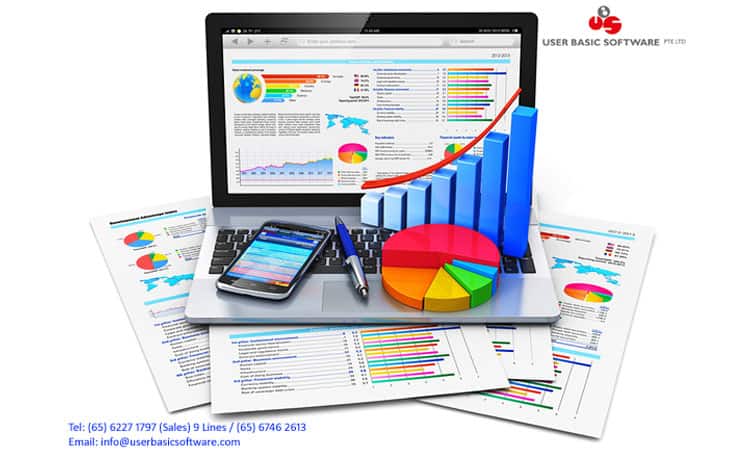Table of content
Case Study: The Use of Accounting Information Systems in the Abu Dhabi Financial Market.
Information systems refer to formal processes through which data is collected then processed into information and later distributed to the end users who require it. Accounting information systems, therefore, refer to structures that businesses use to collect, store and manage accounting information.
These structures are also utilized in the processing, retrieval and reporting of financial data to the end users who include accountant, financial consultants, auditors and business analysts. Managers, financial officers, regulatory bodies and authorizes, and tax agencies also form part of the users of financial data.
This project aims to explain the meaning of accounting information systems, highlight the end users of the financial data processed by these systems and underscore the importance of these systems to the financial success and wellbeing of any company. The project will also take a look at the scope of financial data produced by Accounting Information Systems. This project will also cover the advantages of using electronic Accounting Information Systems as opposed to using manual systems.

There is a lot of literature on the topic of Accounting Information Systems. These sources highlight several aspects of the Accounting Information Systems that are in use today by accounting and financial services practitioners all over the world. Fontinelle (2015) focuses on the components of an Accounting Information System. She writes on the details of each component and details the specific interplay of each component in achieving a wholesome system. She lists the six components as the people who use the Accounting Information Systems.
Here she outlines the categories of professionals who use the systems. The second component she lists is the procedures and instructions which basically refer to the methods used for collection, processing and retrieval of accounting data. Fontinelle (2015), states that the third component of Accounting Information Systems is the data itself. This is the financial information that is pertinent to an organization. Other components include the accounting software, the IT infrastructure available in the firm, and the internal controls used to restrict access to information contained in the Accounting Information Systems.
Van Baren (2014) writes on the importance of Accounting Information Systems. In the literature, the author states that the most notable advantage of automated or electronic Accounting Information Systems is speed and accuracy. To perform the processing of financial data quickly and with more consistency, it is advisable to incorporate the use of artificial Accounting Information Systems.

These systems will offer accurate and consistent results to the end users of that information. The speed with which the information is processed from the raw data input into the system will help the users of these systems such as accountant and financial services practitioners save time.
According to Carr (2013), Accounting Information Systems help detect errors that arise in the course of financial statement preparation. The systems also have a unique system of alerting the end users of unexpected events. This ability to detect errors, coupled with the easy access and secure access of data from any remote location makes the process of financial statement preparation and financial reporting easier.
The ability of the said systems to detect errors and alert users helps improve the integrity of accounting information provided by these Accounting Information Systems. Carr (2013) also notes that automated or electronic Accounting Information Systems offer such options as tabular and graphical presentation of information to the end users. The information may also be presented in the form of charts. All of these help make the presented data easier for end users to digest.

Romano (2013), states that with the use of electronic systems of accounting information, there is assured the security of such information. This is due to the fact that the data processed into the end information can be backed up and retrieved over and over as and when the need arises. This makes the system more secure and reliable than the manual Accounting Information Systems which may be prone to hazards such as fire, theft, and malicious damage.
In his book, Romano (2013) also writes on the need to fully integrate and ensure compatibility for the infrastructure that supports the process of producing and delivery accounting information to the end users using the raw financial data that is fed into such systems. The author argues that this process of integration and ensuring compatibility allows for easier payments and billings of accounts represented in the Accounting Information Systems’ database.
Wiley (2013), writes on the reliability of Accounting Information Systems that instituted by the various internal controls. She highlights the fact that these internal controls are the measures put forward to protect sensitive data and are efficient and effective in the collection and storage of data that concerns an organization’s financial status. Wiley (2013), notes that the internal controls used for Accounting Information Systems may range from as simple a control as the creation of a password phrase to as complex a requirement as biometric identification.
The internal controls help protect the accounting information by restricting unauthorized access to an organization’s computer systems. These controls also limit the access to the computer systems by authorized persons. The author further notes that internal controls that are instituted into Accounting Information Systems may help prevent access of certain sensitive files by individuals who may not have the requisite privileges of access.
Laudon & Laudon (2007), in their study on the management of the digital firm, indicate that the knowledge of information systems is essential for creating successful competitive firms, adding business value and providing useful products and services to customers. They underpin the extreme importance of using information technology; more specifically, automated Accounting Information Systems in the business entity of today.
The authors note that the survival and even existence of a company without the extensive use of IT is inconceivable (p.31). Laudon & Laudon (2007) remark on the emergence of the digital firm where almost all the core business processes are digitally enable from customer relationship management to accounting and even to employee management. The authors, therefor, underpin the importance of automated/ electronic Accounting Information Systems to the business organization operating in the global marketplace today.
Case Study: The Use of Accounting Information Systems in the Abu Dhabi Financial Market.
This study was carried out using the interview method and was aimed at establishing the importance of Accounting Information Systems for effective performance of organizations in the Abu Dhabi financial markets. The study examined the impact of Accounting Information Systems on elements of organizational performance such as performance management and the examination of financial performance.
The results of the survey show that even though Accounting Information Systems are useful to an organization and affects the performance of organizations, especially in this digital age, there is no remarkable relationship between the management of performance of the organizations and the Accounting Information Systems.
As Soudani (2012), notes in his findings on the study of financial markets in select emirates of the UAE, strategic success is considered a result of proper Accounting Information Systems. Just as Soudani found out, the use of Accounting Information Systems in the Abu Dhabi financial markets allows for innovation which further helps to better manage financial aspects of the organizations.
This leads to better performance by the firm and reduces financial obstacles in the organization. This makes it possible for these Abu Dhabi companies to access capital markets. The Accounting Information Systems allow companies in the Abu Dhabi market to observe the concept of timeliness; which refers to the speed and frequency of financial information reporting while affecting the orientation of such information.
While the literature that is available on the Accounting Information Systems does not offer much on the relationship between Accounting Information Systems and the financial performance of companies, as noted by Soudani (2012), it is evident from the case study that the relationship is rather linear; meaning a better Accounting Information System almost certainly guarantees better financial performance of a company.
This is because financial managers in these organizations need financial and accounting information provided by Accounting Information Systems to plan for future performances (Soudani, 2012). Having established that financial performance can be improved by incorporating the use of Accounting Information System; it is therefore true to link the organizational performance directly to proper Accounting Information System.
References
Carr, L. (2013) The Advantages of Accounting Information. Ehow.com. www.ehow.com/list_7457925_advantages-accounting-information.html
Fontinelle, A. (2015). Introduction to Accounting Information Systems. Investopedia.com. www.investopedia.com/articles/professionaleducation/11/accounting-information-systems.asp
Loudon, J. P., & Loudon, K. C. (2007), Management Information Systems: Managing the Digital Firm. International Journal of Computers, Communications & Control, 2(1), p. 103 -105. Pearson Prentice Hall, Pearson Education Inc., Upper Saddle River, New Jersey. www.journal.univaroga.ro
Romano, C. (2013). Advantages of Computerized Accounting. www.cleveraccounting.com/9-advantages-computerized-accounting/
Soudani, S. N. (2012). The Usefulness of Accounting Information System for Effective Organizational Performance. International Journal of Economics and Finance, 4(5). http://dx.doi.org/10.5539/ijef.v4n5p136.
Van Baren, J. (2014). The Importance of Accounting Information Systems. Demand Media Inc. www.ehow.com/about_6510340_importance-accounting-information-systems.html
Wiley, C. (2013). What are Accounting Information Systems? Accountingedu.org. www.accountingedu.org/accounting-information-systems.html